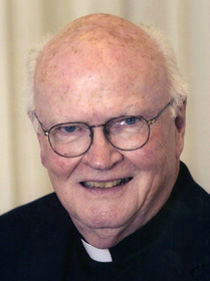
Faith
'Man's fate has forever been shaped between the hands of reason and spirit, now in collaboration, again in conflict. Now reason and spirit meet on final ground. If either or anything is to survive, they must find a way to create an indissoluble partnership.'

SJ
Before President Barack Obama visits Hiroshima later this week, he would do well to read the cover story in the Aug. 20, 1945, issue of Time magazine.
This report was published, as were all Time stories in those days, without attribution of authorship. I learned years later that a young (and then relatively unknown) Time staffer by the name of James Agee wrote the piece under a very tight deadline. The overarching headline was "Victory." The first subhead was "The Peace." The second subhead was "The Bomb."
Time was covering a big story that week, perhaps the biggest of the century. Agee, who later became famous as a writer, saw the "controlled splitting of the atom" that produced the bomb that was used to attack Hiroshima and Nagasaki, and thus bring to an end the greatest conflict in human history, as an event so enormous that in comparison "the war itself shrank to minor significance."
To Agee's eye, "Humanity, already profoundly perplexed and disunified, was brought inescapably into a new age in which all thoughts and things were split -- and far from controlled."
Time's readers, still dizzy with the thrill of victory, could hardly have seen, as Agee did, the potential for good and evil that the atomic bomb represented.
That potential bordered "on the infinite -- with this further, terrible split in the fact: that upon a people already so nearly drowned in materialism even in peacetime, the good uses of this power might easily bring disaster as prodigious as the evil. ... When the bomb split open the universe ... it also revealed the oldest, simplest, commonest, most neglected and most important of facts: that each man is eternally and above all else responsible for his own soul, and in the terrible words of the psalmist, that no man may deliver his brother, nor make agreement unto God for him."
Agee made a shattering observation that rings every bit as true today as it did that memorable August many years ago. Here are the words he wrote -- words that were available to any reader of America's most popular newsmagazine in 1945 and that have gone largely unheeded in the decades since:
"Man's fate has forever been shaped between the hands of reason and spirit, now in collaboration, again in conflict. Now reason and spirit meet on final ground. If either or anything is to survive, they must find a way to create an indissoluble partnership."
These powerful words were perceptive and prophetic. They appeared just before the so-called baby boomers were born. They explain the cause of the "split" that has been troubling humanity at an unconscious level for well over half a century. We have not yet forged the "indissoluble partnership" between reason and spirit (reason, which produced the bomb; spirit, which must manage its control).
We are even more adrift now than we were then on a sea of materialism. We may, however, be beginning to notice what Agee saw when the bomb split open the universe, namely, that each of us is responsible for his or her own soul.
A warning against the perils of materialism would be timely when the president speaks at Hiroshima. A prayer for peace would be more than appropriate when he stands there on final ground.
- Father Byron is a columnist with the Catholic News Service.
Recent articles in the Faith & Family section
-
The Christmas crecheFather Robert M. O'Grady
-
Feeling like ChristmasJaymie Stuart Wolfe
-
Parish priests and their peopleMsgr. Frank Kelley
-
Be the carolArchbishop Richard G. Henning
-
Give a Christmas Gift to the MissionsMaureen Crowley Heil


















